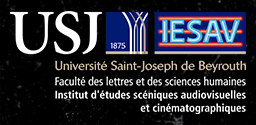Regards
Keywords
Valère Novarina, translation, Novarina’s theatre, theatre text, medieval Arabic maqâma, literary Arabic, meaning of words
Document Type
Article
Abstract
The theater text is always a text to come, according to Valère Novarina’s expression. Once written, it writes itself over and over again on stage. And translating it is always a delicate undertaking. This task becomes even more difficult when the theatrical text is one where the adventure of thought resides in the very act of passing through language – where “a speech from before the ability to speak” emerges, where words, “set in motion,” surprise with unpredictable, incisive meanings, thanks to a mysterious sonority or a tripping up of grammar.
This is the great difficulty in translating Novarina’s theatre into any language. The challenge is even greater when translating into literary Arabic, a language that, for more than a millennium, has forged an unbreakable link with the sacred – a link that tends to freeze meanings and forms, and stigmatize any figure of multiplicity or variation. This article attempts to weave a reflection on these issues.
Résumé
Le texte de théâtre est toujours un texte à venir, selon l’expression de Valère Novarina. Une fois écrit, il s’écrit encore sur scène. Et c’est toujours une entreprise délicate de le traduire. L’entreprise est encore plus difficile dès lors qu’on a affaire à un texte de théâtre où l’aventure de la pensée réside dans le traversement même du langage, où affleure « une parole d’avant la capacité de parler », où les mots, « mis en mouvement », vous surprennent avec des sens imprédictibles, incisifs, à la faveur d’une sonorité mystérieuse ou d’un croche-pied fait à la grammaire.
C’est là la grande difficulté de la traduction du texte novarinien vers toute langue. Cette traduction est d’autant plus redoutable vers l’arabe littéraire que cette variété d’arabe a noué, depuis plus d’un millénaire, un lien indéfectible avec le sacré – lien qui tend à figer sens et formes, à stigmatiser toute figure du multiple et de la variation. L’article tente de tisser une réflexion sur ces questions.
Recommended Citation
Ayoub, Georgine
(2023)
"Traduire Novarina en arabe. Les mots sens dessus dessous,"
Regards: Vol. 29:
No.
29, Article 8.
DOI: 10.70898/regards.v0i29.806
Available at:
https://e-journals.usj.edu.lb/regards/vol29/iss29/8
Included in
Comparative Literature Commons, Creative Writing Commons, Film and Media Studies Commons, Fine Arts Commons, Theatre and Performance Studies Commons


